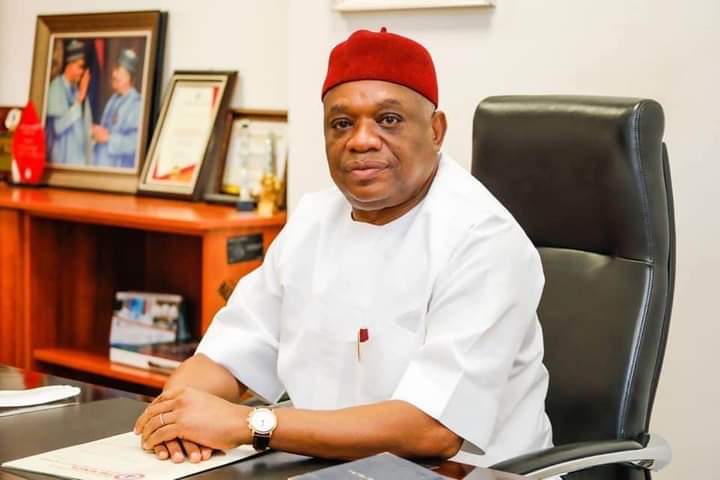POLITICS
10th NASS: Why Kalu should be next Senate President

The Progressive Youth Group, has urged the All Progressives Congress (APC) to zone the Senate Presidency to the South-East.
To this end, the pressure group had endorsed Sen. Orji Uzor Kalu (APC-Abia) who is the Chief Whip of the Senate as the next Senate President.
This is contained in a statement issued in Abuja on Monday by the group’s Convener, Mr Idris Jibril.
He said: “having thoughtfully considered several factors and the greater good for all, the Progressive Youth Group hereby endorses Kalu as the next Senate President of the 10th Assembly.”
Jibril said that the senate as a critical institution provides a crucible for balance of power within the system of government practiced in Nigeria.
“The President-elect is from South-West, Vice President-elect from North-East, it is our fervent believe that the Senate President should come from the South-East.”
The convener also called on the Council of State to join their voices in this worthy endeavour.
“We believe that their endorsement of Kalu will further strengthen his candidacy and send a strong message of unity to the entire country.
“We urge the National Working Committee (NWC) of the APC, the President-elect, elected legislators, and stakeholders to put aside their differences and work toward a common good for the country.
“This is not about political affiliation but about the interest of the country and the Nigerian people.”
He described Kalu as a distinguished Nigerian leader, businessman, and philanthropist with a strong track record of achievements.
“Kalu has contributed immensely to the development of Nigeria in various capacities, including serving as the Governor of Abia State from 1999 to 2007.
“During his tenure, he initiated several development projects in the state, such as the construction of the Abia State University Teaching Hospital, Abia State University School of Law, and the Abia State Polytechnic, among others.”
Jibril said that if Kalu emerges as Senate President, he would help to douse tension in the South-East region and foster unity as well as integration.
“The region has been experiencing heightened tension and insecurity, and there is an urgent need to address this situation,” Jibril said.




 Davido's Net Worth & Lifestyle
Davido's Net Worth & Lifestyle 
